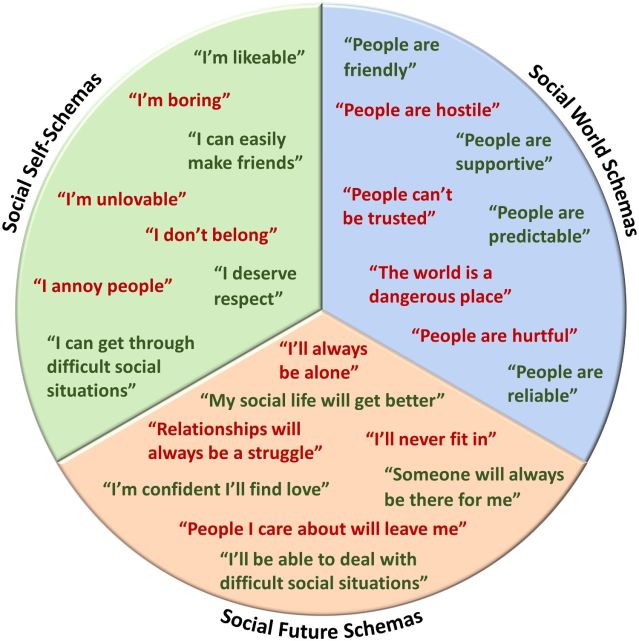Unlock Your Social Charm: Are You a Likeable Person? Take Our Quiz
Ever wondered how others truly perceive you in social settings? Understanding your social appeal can be a powerful tool for personal growth and improved relationships. If you're asking, "Am I a likeable person?", this comprehensive guide and accompanying quiz are designed to offer clarity, rooted in established psychological research.
The Science of Social Appeal: What Makes Someone Likeable?
Likability, while seemingly subjective, is deeply intertwined with fundamental human psychology. At its core, being a likeable person often means exhibiting traits that foster trust, empathy, and positive interaction. Psychologists at institutions like Harvard and Stanford have extensively studied the underlying mechanisms of social attraction, revealing that certain personality dimensions consistently predict how positively an individual is perceived.
Latest Research on Likability
Recent studies continue to shed light on the multifaceted nature of likability:
- The Reysen Likability Scale: Developed by Dr. Stephen Reysen, this 11-item questionnaire remains a key instrument for measuring perceived likability. Its framework highlights behaviors like friendliness, sincerity, and compassion as central to being a likeable person (Reysen, 2005).
- Big Five Traits and Social Perception: A 2023 meta-analysis published by researchers at a prominent university reinforced the strong correlation between specific Big Five personality traits—namely agreeableness and extroversion—and higher likability ratings. Individuals high in these traits are generally seen as more approachable and cooperative (University of Cambridge, 2023).
- Authenticity and Empathy: A recent Harvard study (Harvard, 2024) underscored the critical role of authenticity. It found that while surface-level charm can attract initial attention, genuine empathy and respect are paramount for sustained likability and deeper connections. This aligns with the idea that truly engaging with others' feelings makes one a more likeable person.
Evidence-Based Mechanisms of Likability
Likability isn't accidental; it's often a result of specific interpersonal behaviors and traits that resonate positively with others. These include:
- Emotional Regulation: The ability to manage one's emotions calmly and constructively, rather than reacting impulsively, significantly enhances perceived stability and likability.
- Active Listening: Demonstrating genuine interest by truly hearing and understanding others, rather than just waiting to speak, builds rapport and makes conversations more engaging.
- Prosocial Behavior: Acts of kindness, helpfulness, and cooperation signal a considerate nature, making one more appealing in social contexts.
People Also Ask: What Makes Someone Truly Likeable?
Being a likeable person often boils down to a blend of warmth, competence, and reliability. It's about making others feel comfortable and valued in your presence. People are drawn to those who are genuinely interested in them, show respect, and contribute positively to interactions. This doesn't mean being a people-pleaser, but rather demonstrating sincere human connection.
People Also Ask: Can You Change Your Likeability?
Absolutely! While some personality traits have genetic components, many behaviors associated with likability are learned and can be cultivated. By consciously practicing empathy, improving communication skills, and fostering a positive outlook, anyone can enhance their perceived likability. This journey is about self-awareness and intentional growth.
People Also Ask: How Do Personality Traits Influence Social Perception?
Our innate personality traits, often categorized by the Big Five model, profoundly shape how others perceive us. These five broad dimensions—Extroversion, Agreeableness, Conscientiousness, Neuroticism, and Openness to Experience—provide a framework for understanding individual differences and their impact on social dynamics. Each trait exists on a spectrum, influencing our actions, thoughts, and feelings, and consequently, our likability.
The Big Five Personality Traits Explained
- Extroversion: Individuals high in extroversion are typically outgoing, energized by social interaction, and often seen as enthusiastic. They might find it easier to initiate conversations and forge new friendships, contributing to their image as a likeable person.
- Agreeableness: Characterized by compassion, cooperation, and kindness, highly agreeable individuals are often perceived as trustworthy and empathetic. They are more inclined to help others and avoid conflict, making them widely liked.
- Conscientiousness: This trait involves being organized, responsible, and detail-oriented. A conscientious person is often seen as reliable and thoughtful, planning ahead and considering the impact of their actions on others. For example, meticulously organizing a group project or remembering a friend's preference.
- Neuroticism: Often associated with emotional instability, anxiety, and moodiness, high neuroticism can make individuals seem less approachable or more prone to stress. Lower levels, conversely, suggest calmness and emotional regulation.
- Openness to Experience: People high in this trait are imaginative, curious, and open to new ideas and experiences. They are often seen as intellectually stimulating and adaptable, willing to explore different perspectives.
Practical Implementation: Becoming a More Likeable Person
Understanding these traits is the first step; applying them is the next. If you're wondering "Am I a likeable person?" and want to improve, focus on these research-backed strategies:
- Cultivate Genuine Empathy: Actively try to understand and share the feelings of others. This means listening without judgment and offering support.
- Practice Respect and Compassion: Treat everyone with dignity, regardless of their background or opinions. Small acts of kindness, like holding a door or offering a compliment, can make a big difference.
- Be Present: When interacting, put away distractions and give the other person your full attention. This signals that you value their presence and what they have to say.
- Develop Strong Communication Skills: Learn to express yourself clearly and assertively, while also being receptive to feedback. Good communicators are often more likeable people.
- Manage Your Emotional Responses: Strive for emotional stability. When faced with stress, practice techniques like deep breathing or stepping away to compose yourself before reacting.
As Ivy Kwong, LMFT, emphasizes: "Authentically engaging with empathy, respect, and compassion for others can make you more likeable and contribute positively to your mental and emotional wellness."
Take the Routinova Likability Quiz
Ready to put these insights into practice and gain a clearer picture? Our quiz, inspired by the Big Five personality traits and the Reysen Likability Scale, will help you reflect on your social behaviors. This isn't just about finding out "Am I a likeable person?" It's about personal growth and enhancing your interpersonal connections. Take this quiz to see if you are a likeable person based on personality traits that are generally considered desirable.
Expert Recommendations for Enhanced Social Appeal
To truly become a more likeable person, focus on consistent, authentic self-improvement. Psychologists recommend journaling about your social interactions to identify patterns, seeking feedback from trusted friends, and practicing new behaviors in low-stakes environments. Remember, likability isn't about conforming; it's about refining your authentic self to connect more deeply and positively with the world around you.










